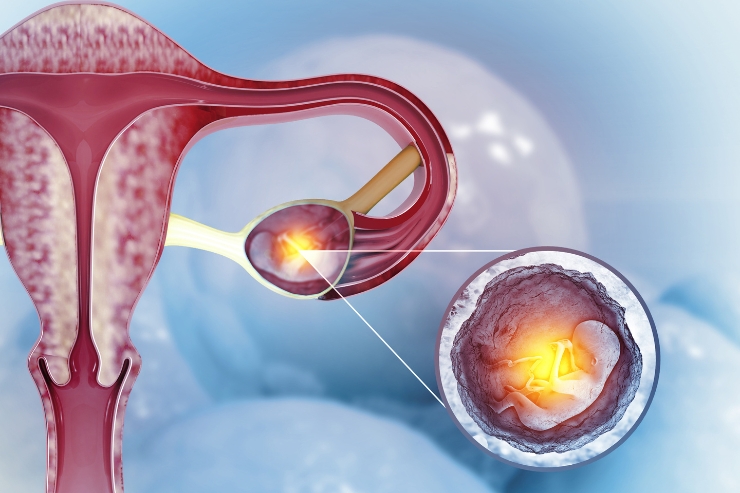
An ectopic pregnancy occurs when a fertilized egg implants and begins to grow outside the main cavity of the uterus, most commonly in the fallopian tube. Since the fallopian tube is not designed to support a growing embryo, the pregnancy cannot proceed normally and poses serious health risks to the woman. If left untreated, the growing tissue can cause the tube to rupture, leading to internal bleeding, infection, and even life-threatening complications. Ectopic pregnancies are medical emergencies and require immediate attention to prevent severe outcomes.
Common signs of an ectopic pregnancy include sharp or stabbing abdominal or pelvic pain, vaginal bleeding, shoulder pain, dizziness, and fainting. These symptoms typically appear between the 6th and 8th week of pregnancy. Risk factors include previous ectopic pregnancy, pelvic inflammatory disease (PID), tubal surgery, endometriosis, smoking, or conception with the aid of fertility treatments. Diagnosis is confirmed through a combination of transvaginal ultrasound and blood tests to measure pregnancy hormone levels (hCG).
Treatment for an ectopic pregnancy depends on the size and location of the implantation and the patient’s overall condition. In early, unruptured cases, a methotrexate injection may be used to stop the growth of the pregnancy tissue. In more advanced cases or when rupture has occurred, surgical intervention, typically through laparoscopy, is necessary to remove the ectopic tissue and repair or remove the affected fallopian tube. After treatment, emotional support and counseling are important, as experiencing an ectopic pregnancy can be physically and emotionally distressing. Early detection and timely medical intervention play a critical role in preserving the patient’s health and future fertility.
Services
- Pregnancy
- Menstrual Disorders
- Menopause
- Pelvic Inflammatory Disease
- Endometriosis
- Polycystic Ovary Syndrome
- Cervical Cancer
- Ovarian Cancer
- Uterine Fibroids
- Urinary Incontinence
- Preeclampsia
- Infertility
- Ectopic Pregnancy
- Sexually Transmitted Infections
- Pelvic Organ Prolapse
- Gestational Diabetes
- Abnormal Pap Smears
- Vaginal Infections
- Contraception & Family Planning